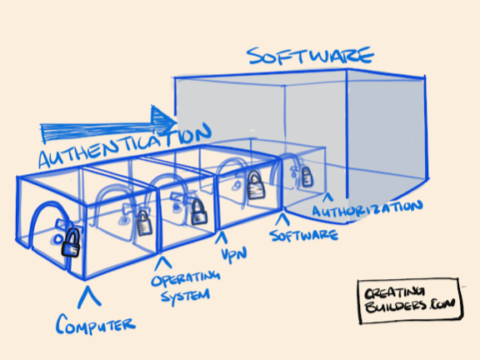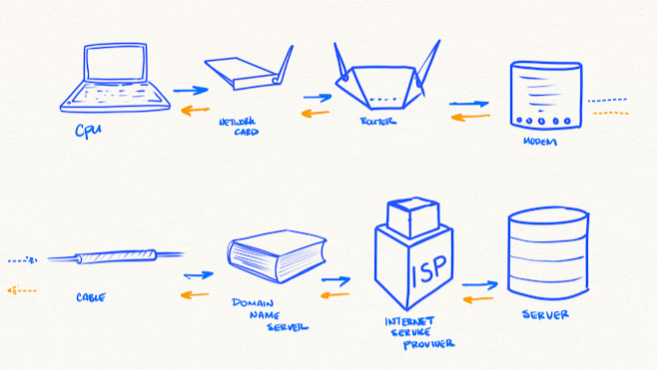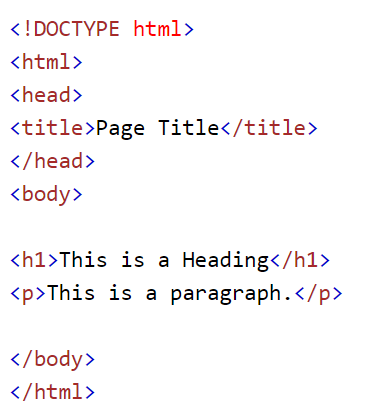Our ancient ancestors used to carry around stacks of paper glued to cardboard and with wooden sticks scratch symbols onto it, inevitably they’d carry them around and lose them and stuff. Well, after the invention of computers they used these floppy plastic things that they’d stick into the computer to save their written thoughts on. Those got old and kinda died and, well, then went to “disk-heaven” that we call the cloud? “Is that right?”
I mean, “kinda”, but the truth is that when we save something to the cloud we are really saving it to a “server” somewhere that exists in a real place, and while exactly zero of them are in the sky some of them are underground (meaning if we are going to use terms like cloud – did floppy disks die and go to…well, hell?)
Server. You hear this a lot right? More people than will admit it hear it but don’t “get” it, but it is just a special computer with a primary job of storing data not too unlike the memory storage in the device you are reading this on. Usually the servers live in giant-looks-like-target buildings.
Like this:

chaddavis.photography from United States, CC BY 2.0 https://creativecommons.org/licenses/by/2.0, via Wikimedia Commons
…and like, well a boring target with less color on the inside…google data center for some more sci-fi pictures, but aisle after aisle of stacked computers/servers is the idea.

Florian Hirzinger – www.fh-ap.com, CC BY-SA 3.0 https://creativecommons.org/licenses/by-sa/3.0, via Wikimedia Commons
Your gmail account lives in a place like this. if you notice, all those spammy emails are not taking up space on your hard drive – that’s because they don’t live on your hard drive, they live on Google’s. Wait…can they look at it? Technically yes, you’d have signed it over in the user agreement, but access is highly restricted and they carry something like 10-15 exabytes of data [ Google, How Much Data Do You Handle? – Guidesify] which is the equivalent of 15 billion movies – this takes 30 billion hours or 3.4 million years to watch. Do they care about your stuff that much? I mean, I think you are awesome, but that is a lot of watching. There is some protection in the anonymity of being a single grain of sand in a world of beaches. We’ll talk later about machine learning & data science and why it is still a good idea to not be an idiot.
Another example: when someone asks you who “hosts” your website they are asking you who you pay rent to for your rad blog to have a home somewhere. Your 1’s and 0’s are living there etched into your hosting providers servers forever (ish).
More than storing data
A cloud (server, hosting, etc.) provider does a lot more than just act like a landlord for your data. Let’s say you are starting a business selling used cars and decide to be viable so you need a computer strategy. Let’s start a shopping list:
- A computer, probably more than one
- Those computers need an Operating system (like windows or mac)
- Should all your computers be top of line? It’d be cool to share the powerful computer when someone else needed it. Need to find a solution here.
- The computers will need to talk to each other (see network), so may need some networking equipment
- Since you’ll be collecting data you’ll need some sort of database software to help you manage it
- Oh – and a place to store it since you want to sell lots of cars and track more data on it than will fit on one computer, that means you’ll need a server
- Ah yeah, gotta make sure I don’t get hacked so should probably hire a security expert
Which reminds me I’ll actually need to hire some people to think about how to set all of this up and make sure it runs all the time (don’t wanna be missing sales because my sales people can’t access the data they need to close deals)
Hmph. This is getting expensive, can I buy everything in one? …Of course you can!
IAAS, PAAS, SAAS
Infrastructure-As-A-Service (IAAS)
We hear this all the time but don’t often think about what it means. the infrastructure for a city is all the stuff that allows life to happen normally, think plumbing, roads, & electricity. In tech it means data storage on servers that are connected together by networks.
It also includes something called “virtualization”. See you used to give Bob the IT guy a super powered laptop that had all the fancy power and RAM & was really expensive, if you gave everyone that equipment you went out of business, the problem is that sometimes even Bob didn’t need that powerful computer when he was just checking his fantasy football league scores.
It turns out by virtualizing, you give folks a normal laptop and they log into the cloud for: a ramped up computer with powerful RAM – yep, as much CPU power as you want – yep. This also allows you to manage that stuff from one place & dial up and down the power and storage as needed.
Also you get with it an army of ninja security experts that you would otherwise have to hire ( $$$$$ ) who are on the hook for defending the infrastructure that you now belong to.
Buying that together is called Infrastructure as a Service or IAAS.
Platform-As-A-Service (PAAS)
Buy maybe you want more and need to aim for PAAS or Platform as a Service. What is a Platform? In the olden days people would stand on a stool or a stage so that other people could see them. In the computer world a platform is similar in that it is the stuff that your other tech stands on to be useful. This includes our infrastructure stuff from before but adds on things like Operating systems and the Middleware software that allows the efficient operation of the system. In addition you don’t need to hire genius level experts to protect your data and set them up it is part of what is baked into the pricing when you put your data on the cloud.
Software-As-A-Service (SAAS)
But if you want to go the distance, you want ’em to run it all, add applications and databases and you’re now just solvin’ problems with SAAS. You are familiar with this – anytime you use software that you are not creating the code on or managing the database to you are using SAAS. Facebook, Linkedin, Quickbooks: all SAAS.
So to recap: The Cloud is not really in the sky, it does the same kind of stuff that your computer does just at wildly bigger scale & you can rent it in chunks called Iaas, Paas & Saas!
Now you noted security, you’ve heard about encryption, what exactly is that and how does that work? I’m so glad you asked…




